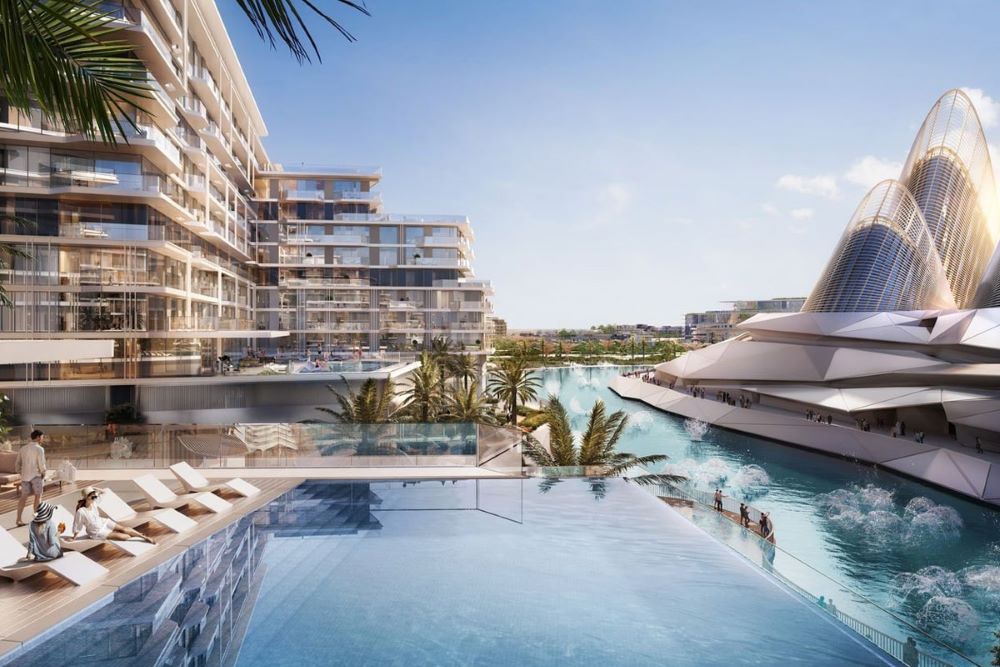
globalbizmag.com
UAE economy set for robust growth
The UAE’s economy is set for a robust growth of 5.3% on average over 2022-23 compared with 3.8% in 2021, due to rising oil output rises and fading of pandemic fears, according to a report by National Bank of Kuwait.
Oil sector GDP will lead the way, increasing by around 10% per year on higher oil output projected at 3.3 million barrels per day by end-2023 helped by the unwinding of OPEC+ production cuts. Huge investment by state-owned ADNOC ($127 billion) over the next five years will underpin sector expansion including a rise in oil production capacity to 5 mb/d. Projects coming online over the forecast period include the Bab integrated facilities expansion (450 kb/d), Bu-Hasa field development project (550 kb/d), and Integrated Gas Development Expansion Phase II (245 mcf/d).
The outlook for the non-oil sector is broadly positive, with growth of 3.5% on average in 2022-23 amid fading pandemic pressures and an improvement in tourism-related and real estate activities, the report said.
Direct exposures to Russia and Ukraine are limited (about 1% of UAE total trade, 7% of total tourists), but a prolonged or more intense war could weigh more on economic conditions given the UAE’s status as an international trade and business hub.
The government has been so far successful, investment, diversification-centred policy approach continues to underpin the medium-term outlook, including programs such as the “Projects of the 50,” Green Agenda 2030, and 2050 Energy Strategy.
These initiatives aim at accelerating the economy’s transformation via stronger private sector growth, attracting foreign investment of $150 billion over the next 10 years, promoting digitization and a shift towards a low-carbon future.
“Growing economic competition with Gulf neighbours will keep up the pressure on the authorities to preserve the country’s status as the region’s leading trade and investment hub, reflected in openness to foreign investors, keenness to attract skilled labour and pro-business legislation such as the recent commercial companies’ law and measures to support intellectual property rights and trademark protection,” the report said.
Inflation to rise, gradual property market recovery from just 0.2% on average in 2021, inflation could to rise to around 2.5% per year over 2022-23 on supply chain disruptions, high food and fuel prices, and the recovery in the housing rentals sector.
The higher policy interest rates – in line with expected moves by the US Fed – could help in absorbing some of these pressures. Tightening financial conditions and the conclusion of loan deferral program in December 2021, could weigh on the expected improvement in private sector credit growth, which remained soft in February at just 1% y-o-y.
Meanwhile, residential property prices started to see significant rises in H2 of 2021 (+7.9% y-oy in Dubai, +1.8% in Abu Dhabi) after a multi-year slump. Despite higher interest rates, the market should continue to recover, but at a moderate pace on strong expected supply of new units. A range of measures are also in place to entice demand, including the allocation of AED12 billion to provide housing loans.
Fiscal and External Sectors Benefit
The public finances proved comparatively resilient through COVID-19 helped by less dependence on volatile oil revenues (41% of total revenues) versus GCC peers. The fiscal balance swung back to surplus in 2021 and expected to strengthen further in 2022-23 boosted by higher oil prices, solid economic activity and the implementation of 9% federal tax on corporate earnings for the first time after June 2023.
Expenditures could see a moderate rise on higher capital spending to support government-led initiatives and subsidies. Surpluses of around 8% of GDP are forecast in 2022 and 2023, excluding government investment income.
The government’s broader financial position remains very strong, with a high AA/Aa2 investment-grade credit rating and sovereign wealth funds’ assets of an estimated $981 billion, or more than 200% of GDP.
The Dubai government in April set up a debt management office to improve transparency and manage ongoing financing needs, though it is unclear if this will extend to any indebted GREs that encounter issues as global financial conditions tighten.
Meanwhile, the external position remains strong, with current account surpluses seen above 30% of GDP on higher exports of aluminum, copper, iron and steel products, as well as higher oil prices.










